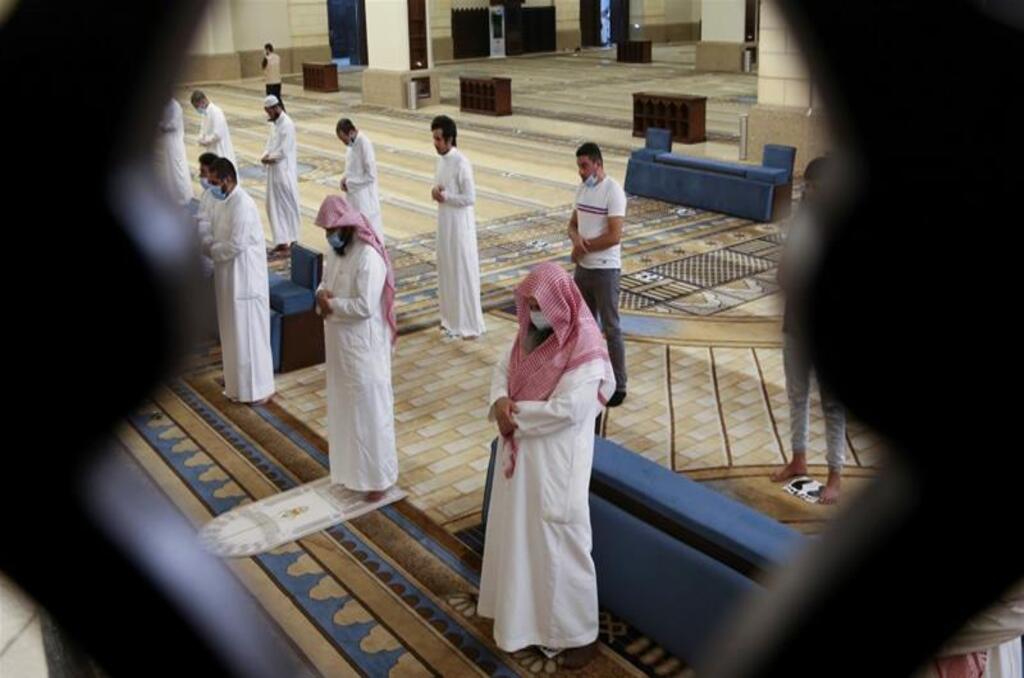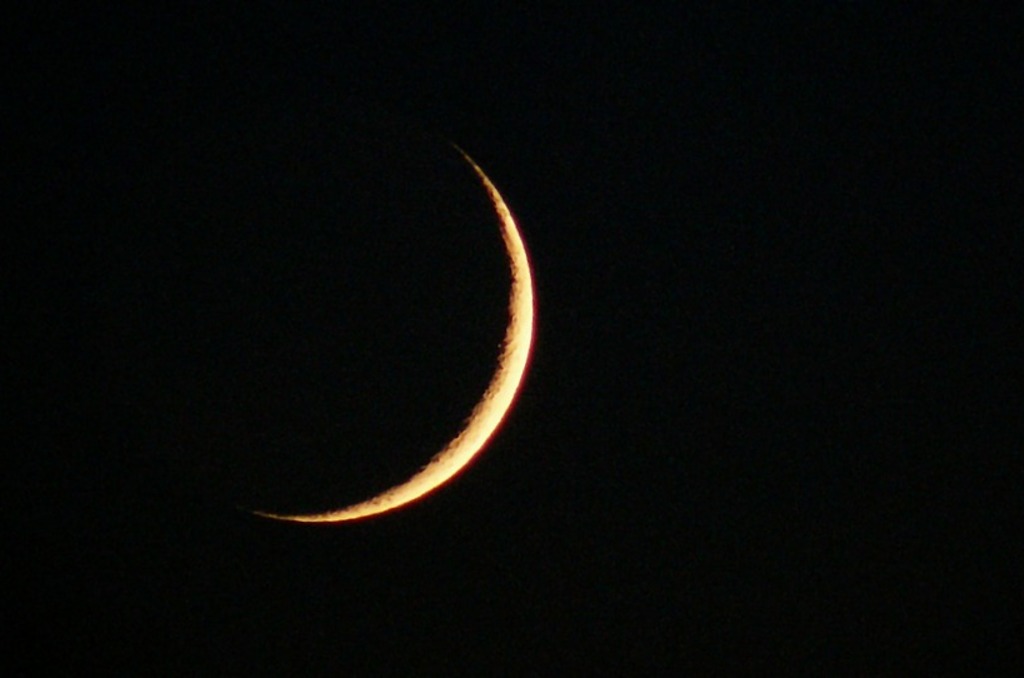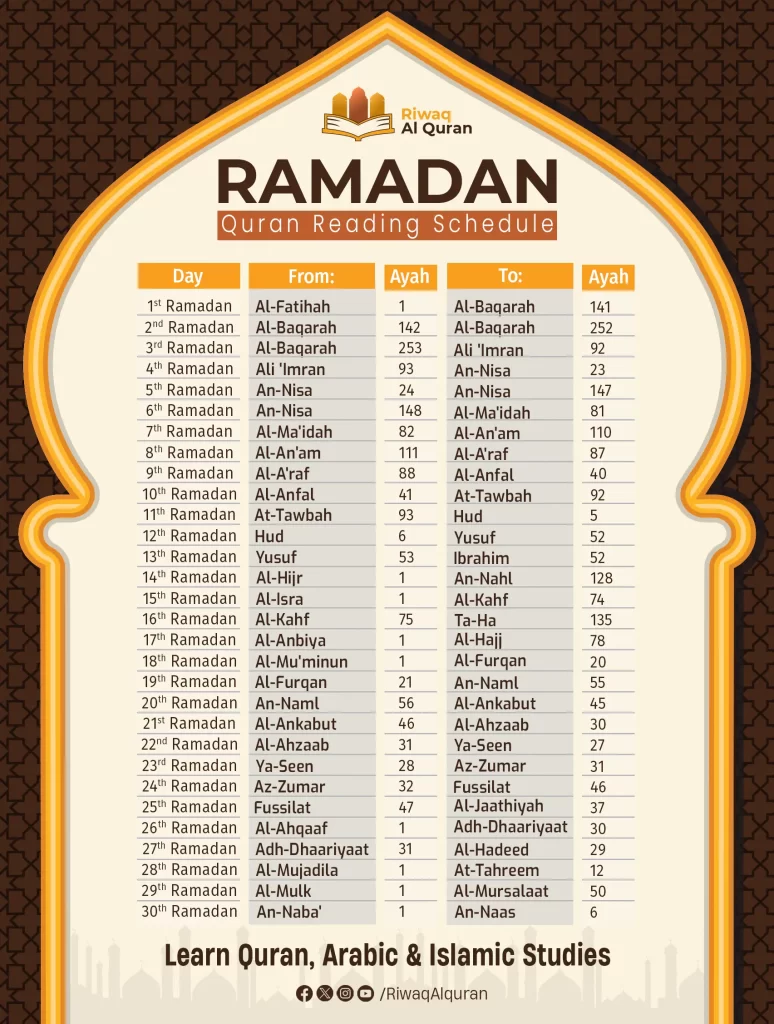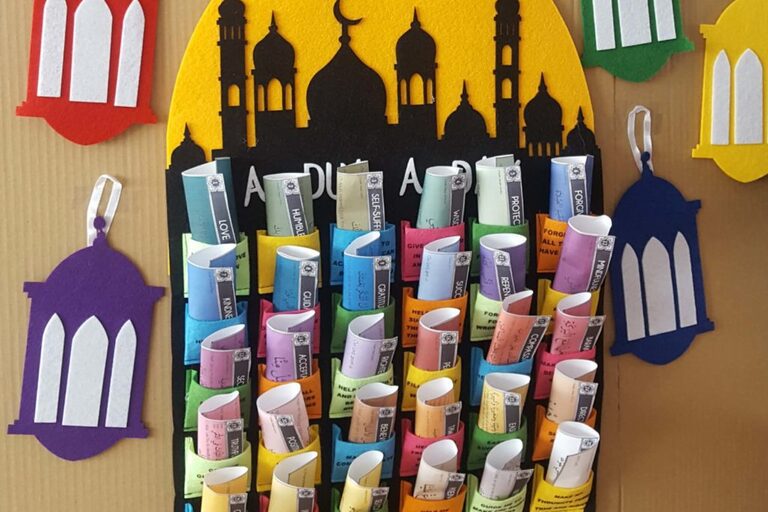As Ramadan is coming soon, Muslims all around the world prepare themselves to make the most of it and gain the pleasure of Allah SWT by doing as many good deeds as they can and making their best to stay away from Haram acts of all kinds.
Prayers during Ramadan hold immense significance in Islam, serving as a crucial act of worship and a means of seeking forgiveness and spiritual enlightenment. Muslims are encouraged to engage in both obligatory (Fard) and non-obligatory (Nafilah) prayers throughout the month, with a particular emphasis on Taraweeh prayers during the nights of Ramadan.
While there is no specific merit attributed to the first ten days of Ramadan, the last ten days hold special importance, especially due to the Night of Decree (Laylat al-Qadr), which is described as better than a thousand months. During these blessed nights, Muslims are urged to increase their acts of worship, charity, and supplication, seeking the immense rewards promised by Allah SWT.
Additionally, special attention should be given to the time of breaking the fast (Iftar), during which Muslims are encouraged to recite specific prayers, expressing gratitude and seeking blessings from Allah SWT. Overall, Ramadan serves as a time for heightened spiritual devotion and reflection, with prayers playing a central role in the believers’ quest for spiritual growth and closeness to Allah SWT.
After deciding on the Ramadan Quran reading schedule to follow during the blessed month, Ahmad sits with his father to review the rules of Ramadan and the acts of worship related. Today is the time to review the rules of prayer from a book serving as Ramadan prayer guide 2026. Ahmad is so curious as he knows that prayer is one of the pillars of Islam and it is the connection between the slave and his Creator as well.
Table of Contents
Prayers for Ramadan
Ahmad and his father want to create a Ramadan prayer guide 2026 to follow. The father starts saying: Prayer (Salah) is the most important practice in Islam after declaring faith in Allah and His Messenger. It is:
- The best act of worship in Islam.
- An expiation for his previous sins as long as the Muslim does not commit a major sin.
- The light of the soul.
- A barrier against immorality and wrongdoing.
This is for the five obligatory prayers when they are performed properly and with serenity. As for the Nafilah meaning, it is the non-obligatory prayer like the regular Sunnah prayers, Duha prayer… etc.
Here is a simple Ramadan prayer guide (pdf) for the five obligatory prayers:
Nafila Ramadan Prayer
The Nafila (optional) prayers in Ramadan are a significant opportunity for spiritual growth and completing the obligatory prayers. The Prophet Muhammad (peace be upon him) maintained twelve rak’ahs of regular Sunnah prayers, known as “rawatib,” alongside the obligatory ones. These include four rak’ahs before Dhuhr, two after Dhuhr, two after Maghrib, two after Isha, and two before Fajr. The best time to pray these is at home, though they can also be prayed in the mosque. In travel, it’s recommended to skip most of the Sunnah prayers except for the Fajr Sunnah and the Witr prayer.
Ramadan offers a chance for change, especially for those who have neglected voluntary worship. The month helps soften hearts and prepares individuals to enhance their devotion. The Prophet (peace be upon him) emphasized the importance of maintaining voluntary prayers, stating they complement the obligatory ones. Praying additional voluntary prayers like the 12 rak’ahs daily or fasting specific days of the year can lead to a special reward in the Hereafter, with the promise of a house built in Jannah for those who maintain these acts of devotion.
Let Ramadan be the turning point for strengthening your worship and establishing a closer connection to Allah, as every small effort, even the least, brings immense spiritual rewards.
Taraweeh Prayer Guide
Moreover, the father continues, Muslims should increase the acts of worship in this month due to its virtue. Thus, he should perform the non-obligatory prayer (Nafilah) in Ramadan, like the regular Sunnah prayers, Duha prayer, and so on. Also, Muslims should pray the special type of Nafilah in Ramadan, called Taraweeh prayer or Ramadan night prayer, out of its virtue. Some Muslims even draw a Taraweeh prayer guide to track their progress and stay motivated to regularly pray it.
Shaykh Al-Islam Ibn Taymiyah said: If a person prays Taraaweeh according to the Madhhabs of Abu Haneefah, al-Shaafa’i, and Ahmad, with twenty rak’ahs, or according to the madhhab of Maalik, with thirty-six rak’ahs, or with thirteen or eleven rak’ahs, he has done well, as Imam Ahmad said… because there is nothing to specify the number. So the greater or lesser number of rak’ahs depends on how long or short the Qiyaam (standing in the prayer) is. (Islam Question & Answer)
Read more about How To Pray Taraweeh? A Full Guide For Beginners
The virtue of the Night Prayers During Ramadan
As for the virtue of performing the night prayers during Ramadan (Taraweeh prayer), it is highly recommended. It is classified under the night prayer [Qiyam]. However, as mentioned before, the reward is special out of the virtue of Ramadan.
Prophet Muhammad (PBUH) says: “Whoever performs night prayer [Qiyam] in Ramadan out of faith and in the hope of reward, his previous sins will be forgiven.” [Sunan an-Nasa’i]
- “ Out of faith” means to do this worship believing in Allah’s promise of reward.
- “ And in the hope of reward” means, seeking the reward and with no other intention such as showing off, etc.
Nafilah Prayers in Congregation
At this point, Ahmad asks a question: O father, before we create our Ramadan Prayer Guide 2026, what about praying the non-obligatory prayers in a congregation?
The father explains this issue by saying: There is nothing wrong with offering Nafilah prayers in congregation, but that should not be done on an ongoing basis, rather it may only be done sometimes.
The father continues: Shaykh al-Islam Ibn Taymiyah (may Allah have mercy on him) said: “Voluntary prayers done in the congregation are of two types, one of which it is Sunnah to do in a congregation, such as the Eclipse prayer, prayers for rain, and Qiyam during Ramadan (Taraweeh). These are always done in a congregation as it is the Sunnah to do so. The second type is not done in a congregation, such as Qiyam Al-Layl, the regular Sunnah prayers, Duha prayer, Tahiyyat al-masjid (greeting the mosque), and so on…”(Islam Question & Answer)
Attending Prayer During Ramadan in Epidemics

Ahmad asks his father about the condition of congregation prayers, like the Taraweeh prayer, under Covid 19 or the like epidemics. He says: are we allowed to pray in congregation at that time?
The father answers: It is prohibited for a person infected with this virus to attend Friday prayers and prayers in congregation, because the Prophet (blessings and peace of Allah be upon him) said,
“Sick (camels) should not be put with healthy (camels).” [Sahih al-Bukhari]
Also, If anyone fears that he may be harmed or may harm others, it is permissible for him to not attend the Friday prayer and prayers in congregation, because the Prophet (blessings and peace of Allah be upon him) said,
“There should be neither harm nor reciprocating harm.” [Narrated by Ibn Majah].
Experience Riwaq Al Quran Classes
Watch real moments from our live sessions at Riwaq Al Quran and see how we bring learning to life. These clips highlight our interactive, student-focused approach designed to keep learners engaged, motivated, and actively involved in every step of their educational journey.
Prayers of Ramadan – First 10 Days
Ahmad is now interested in the idea of creating an organized Ramadan prayer guide 2026 so as to stay focused and make the most of the blessed month.
As for the first 10 days of the month, Ahmad searched for this topic before, so he wants to take authentic information from his father who is a Muslim scholar. Is there any special merit for the first 10 days or for the prayers of Ramadan in them?
His father replies saying: No Ahmad. There is no Ayah from the Quran or an authentic Hadith to depend on in this regard. Thus, we say what the authentic sources say; the merit of Ramadan as a whole is unique, and the merit of prayers in Ramadan as a whole is unique as well.
However, there is extra merit for the last ten days of Ramadan, not the first ones, mentioned in the Prophet’s (PBUH) Sayings. For example: “When the last ten days began, the Prophet (PBUH) would tie his lower garment (Izaar) tight and stay up at night, and wake his family.
- “The last ten days” means the last ten days of Ramadan.
- “Tie his lower garment (Izaar) tight” – it was said that this is a metaphor for striving hard in worship.
- “stay up at night” means staying up and praying and doing other acts of worship.
- “and wake his family” means, he would wake them up to pray at night. (Islam Question & Answer)


The Night of Decree (Al Qadr Night)

There is one more important topic before creating Ahmad’s Muslim Ramadan prayer guide 2026, and his Muslim prayer guide when Ramadan ends. This topic is the Al-Qadr night and the extra merit for the last ten nights of Ramadan.
They are of great importance due to the existence of the Night of Decree (Al-Qadr Night). It is not revealed for us to do our best in all the last ten nights of Ramadan.
Allah says: “The Night of Al-Qadr (Decree) is better than a thousand months.” [Al-Qadr: 3]
Here are some tips to follow in order to make the most of these blessed days:
- Giving charity to those in need.
- Having a well-planned Quran reading schedule to stay focused.
- Avoid distractions!
- Prepare the place where you pray and read the Holy Quran.
- Vary your acts of worship in order not to get tired or bored of just one act.
- Get your family involved and share simple Ramadan Kareem wishes and plans with them.
- Make lots of dua!
Muslim Fasting Prayer
After talking about Ramadan prayer guide 2026, Ahmad moves to another important act of worship in Ramadan, asking his father if there are prayers that should be said at certain times.
The father replies saying: Dua is highly recommended at any time of Ramadan, especially in the time of breaking fast. One of the payers to say during Ramadan is the Muslim fasting prayer or the Dua we say before breaking our fast.
Marwan ibn Salim al-Muqaffa’ said: I saw Ibn Umar holding his beard with his hand and cutting what exceeded the handful of it.
He (Ibn Umar) said that the Prophet (ﷺ) said when he broke his fast: Thirst has gone, the arteries are moist, and the reward is sure if Allah wills. (Al-Albani)
Uniqueness of Islam
Indeed, what helps Ahmad to be a true Muslim is his understanding of the uniqueness of his religion and its effect on him. He often reads about Islamic history, the Names and Attributes of Allah the Almighty, and the inspiring Muslim leaders throughout time.
He read once an inspiring article under the title: How Did the Spread of Islam Affect the World? and that made him want to learn more and more about his religion. Understanding this aspect paves the way for worship for Muslims to modify their prayer and feel the beauty of religion as well.
Ahmad’s Decision
By the end of this informative session, Ahmad thanked his father for reviewing the Ramadan prayer guide 2026. He understands now the importance of praying, especially Ramadan prayers. Thus, he decides to correct his recitation of the Quran and to continue his memorization of it, to be an Imam for the Masjid in Taraweeh prayer like his father InshaAllah.
At Riwaq Al Quran Institute, our mission is to instill the love of Allah’s religion in our children’s hearts by teaching them what they need to know about their religion and making them passionate about learning more and more all through the Islamic studies for kids course as well as the online Quran for kids course.
This is Ahmad’s dream and this is how he has decided to create his Islamic prayer guide. What is yours?
Why Students Love Learning with Riwaq Al Quran
Hear directly from our students about how Riwaq Al Quran Academy has transformed their connection with the Book of Allah. Their experiences reflect the dedication, care, and quality that guide every step of our teaching.
Read the Quran in 30 Days Schedule
One of the most frequently asked questions about the Ramadan Quran schedule is how to make a proper reading schedule and how to finish Quran in Ramadan in an organized and simple way.
The best way to complete it is to set a daily target and create a Ramadan Quran reading schedule. When you create an organized Ramadan Quran reading schedule, it will help you stay in the flow and finish the whole Quran recitation during Ramadan. Here is a simple and organized one:

Learn Quran, Arabic, And Islamic Studies Online With The Best Native Tutors
Riwaq Al Quran is a comprehensive online platform that offers personalized Quran, Arabic and Islamic Studies Online classes for individuals of all ages and backgrounds.
Their experienced instructors use a structured curriculum to cover Tajweed, Tafsir, and Memorization, providing easy and effective access to learning the Quran.
The advanced online classes allow for seamless communication and interaction between students and teachers. Join Riwaq Al Quran for a deeper connection with the Quran.
We offer several courses such as:
- Online courses for kids.
- Online Quran classes for kids and adults.
- Online Arabic courses
- Online Ijazah courses
- Online Islamic Studies courses.


Conclusion:
In conclusion, prayers during Ramadan hold immense significance in Islam, fostering spiritual growth, connection to Allah SWT, and seeking divine blessings. From obligatory prayers to voluntary acts like Taraweeh, Muslims engage in worship as a means of spiritual purification and renewal.
The emphasis on the last ten days, particularly Laylat al-Qadr, underscores the profound opportunities for seeking forgiveness and divine favor. Ultimately, Ramadan prayers offer believers a pathway to spiritual fulfillment and closeness to the Creator.


































